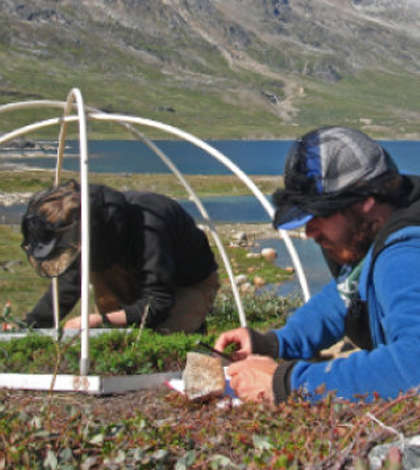Plant Gases May Cool Arctic And Slow Global Warming

Researchers measuring on the tiny tundra plants. (Credit: Magnus Krashøj)
Researchers from the Department of Biology and Center for Permafrost at the University of Copenhagen recently made a startling discovery: The biogenic volatile organic compounds (BVOCs) produced by tundra plants may help slow down global warming in the Arctic, counteracting climate change effects across the rest of the globe as well.
The BVOCs are naturally produced by tundra plants as defense against pests. However, the same compounds form particles which can then encourage cloud formation. The cloud formation, in turn, creates protection from solar heat, reducing warming.
The experiments were conducted in Greenland. Tundra plants were studied in small greenhouses to mimic global warming effects. Some were uncovered, exposing them to the sun’s rays, while others were shaded to mimic cloud conditions with lower solar penetration. The researchers found that shaded conditions had the most dramatic effect on plant emissions: 70 percent fewer volatile compounds were produced.
The results highlight how sensitive plant BVOC production is to climate change. Arctic plant BVOC production was shown to be 20 times more sensitive to temperature increases than other plant biological processes, such as CO2 production.
Top image: Researchers measuring on the tiny tundra plants. (Credit: Magnus Krashøj)











0 comments